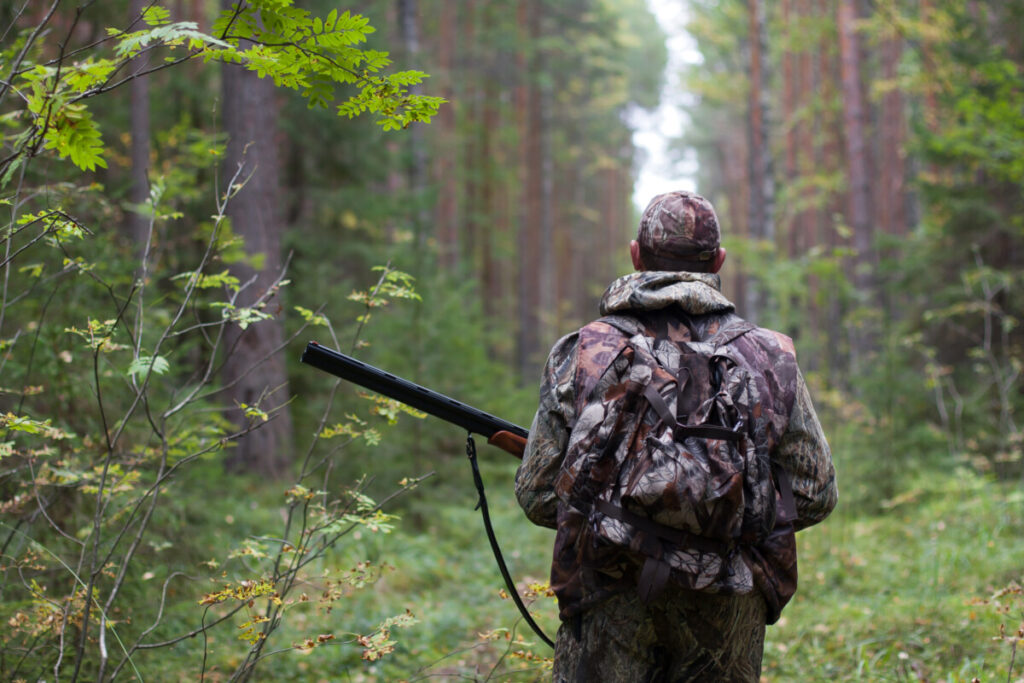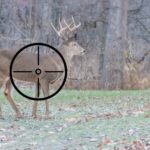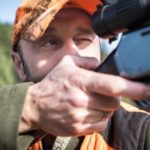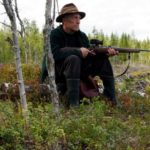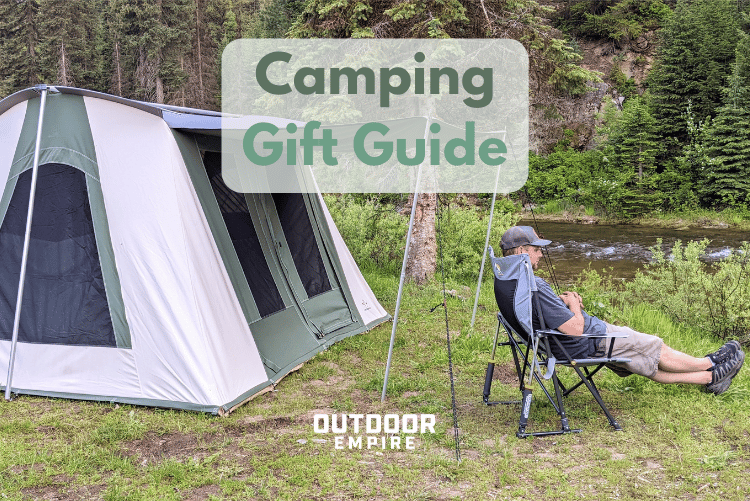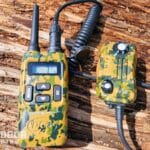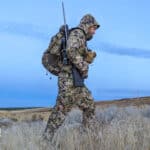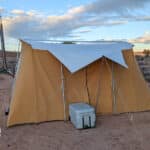Hunting is a hobby that comes with unique benefits like fresh meat, lots of time outdoors, and a respect for wildlife. Can it turn into a career?
The average professional hunter earns around $58,000 a year. The top 10% of earners make about $110,000 a year. Seasoned hunting guides are paid the highest. For people who make a living hunting, it is an intense full-time job and requires extensive experience to make money.
Hunting as a job is a little different than hunting as a hobby! For more information on professional hunting, keep reading.
How Much Do Hunters Make?
How much a hunter makes will depend on factors like their experience level, location, specializations, and whether they can offer other services like trophy mounting or guiding. Some hunters run multigenerational operations, some are self-employed, and some are employed by the government or other hunters.
If you’re looking into becoming a professional hunter, you will want to consider all these factors before deciding on an area to go into.
Government Hunters/APHIS
The U.S. Department of Agriculture runs a program called Animal and Plant Health Inspection Services, or APHIS. APHIS employs “Government Hunters” and wildlife management personnel who do depredation hunts to take care of problem animals, like coyotes or bobcats, and potential rabies cases.
These employees are often required to have a biology degree before they are hired and hunting may only be a part of their job.
APHIS Wildlife Management employees earn around $60,000 yearly.
In addition to federally employed hunters, state fish and wildlife agencies often seek the services of professional hunters on a contractual or even full-time basis. These jobs ebb and flow based on policy changes and wildlife management needs. Some contracts pay fixed rates while others pay piece rates according to the number of predatory game animals exterminated in problem areas, for example.
U.S. Hunters
These are the hunters I referred to at the beginning of the article, and this is the most common type of hunter. The average pro hunter salary in the U.S. is $58,481, with a fair amount of variation.
Can You Make a Living Off Hunting?
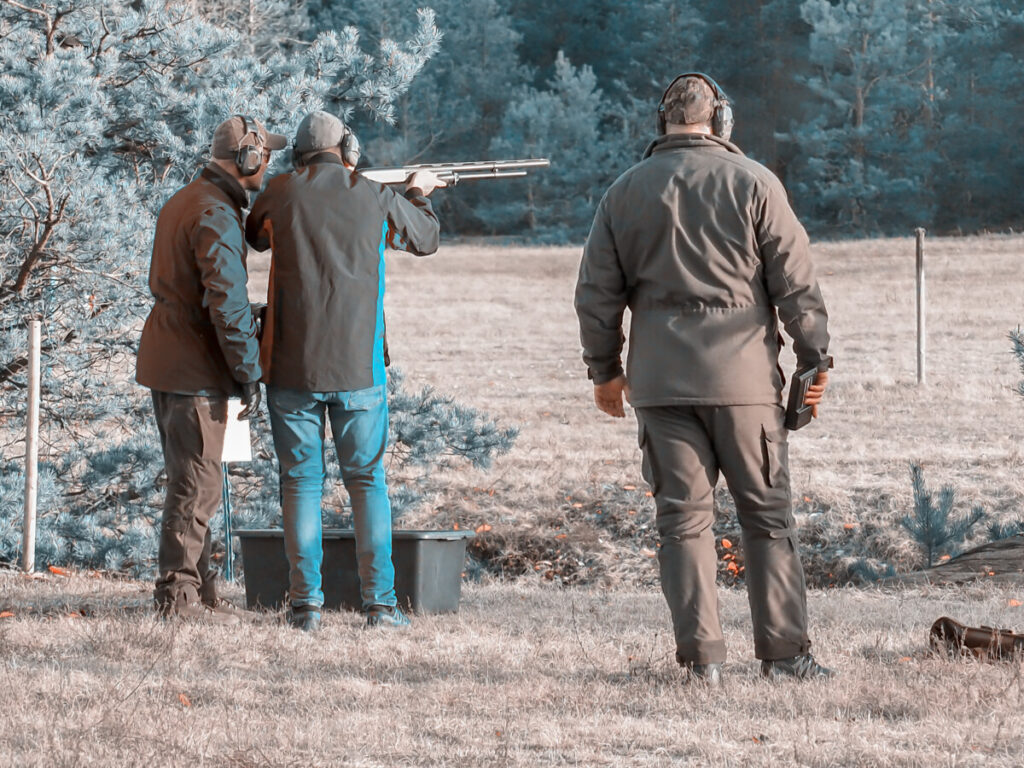
This question is highly dependent on where you live and the kind of hunting you do, but yes, it is possible to make a very good living off of hunting! Professional hunters can even own their own business and hire others when they’re successful.
I know a couple who are both professional hunters. They make their living as hunting guides and taxidermists. Their company is so successful that they are able to hire multiple other hunters for the busy season. It’s an intense and busy job, but they enjoy it and have maintained it for years. They have no plans of changing careers.
Many pursue professional hunters as a side hustle or part-time seasonal job where they guide hunts in an area they know well or simply hunt pest-species with bounty programs.
Becoming a professional hunter does take considerable effort, and it will take time to develop enough of a steady income to live off of. Learning taxidermy or other services as a side job is an excellent way to supplement income while building useful skills.
Side jobs to supplement income could include:
- Selling photographs taken during hunts
- Posting videos of hunts on YouTube
- Curing and selling meat from your hunts
- Curing and selling pelts/skins/furs from hunts
- Selling entire taxidermied trophies
- Guiding tours for hunting, fishing, or exploration
- Teaching Hunter Safety courses
- Mentoring new hunters
- Hunting problematic animal species for which the state pays bounties
If you are successful enough, any of these can be your main job!
How Many People Make a Living Off Hunting?
This is a difficult number to pin down because of how people go about professional hunting. There are a few sure numbers, but they primarily relate to specific jobs.
APHIS, or Wildlife Services, employs a staff of around 750 hunters that work primarily in airports to keep birds from interfering with flights. That is a niche job that makes a big difference in how our world works.
Roughly 40,000 small businesses offer guide and outfitter services in the US, and about 15,000 of those operate under a permit, contract, or other federal authorization. Many of those services are run by professional hunters.
Worldwide, thousands more people are employed as professional hunters.
Australia employs them to manage kangaroo populations, many countries in Africa have professional guides, and private estates in the UK and Ireland hire professional gamekeepers.
Those are just some of the varied professions available for professional hunters! If you’re reading this outside the U.S., you might still have a variety of options.
Is a Professional Hunter a Job?
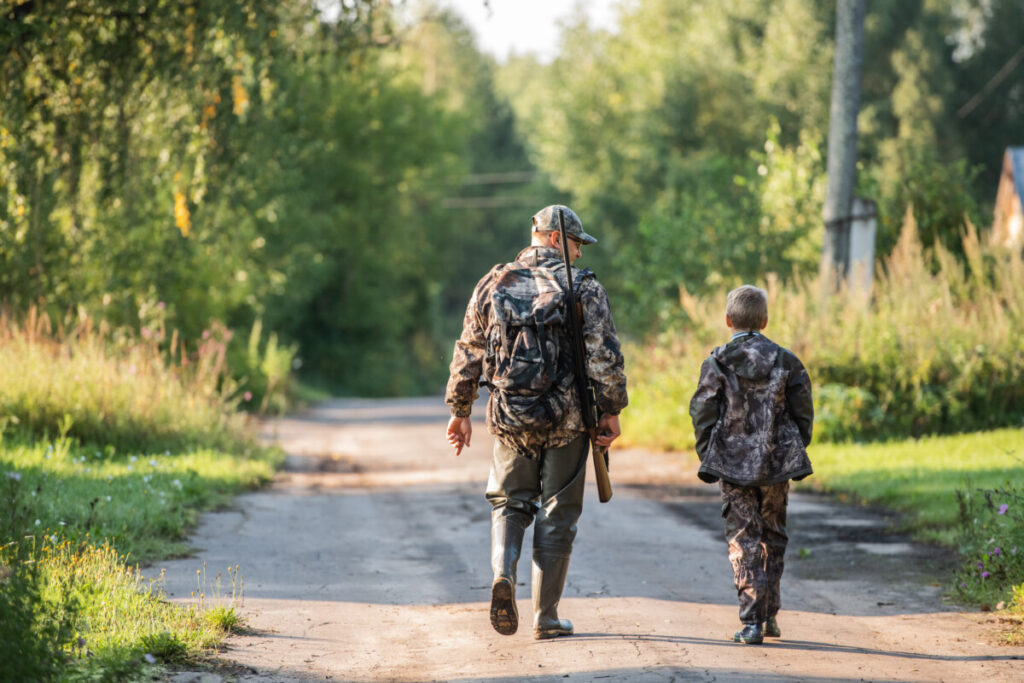
Yes, being a professional hunter is a job! The profession can be broken down into multiple other jobs that could require specialization, but it is a job in and of itself. People will pay to watch videos of hunts or hire a professional hunter to guide them. If you have a successful hunting media channel, companies will pay to advertise their products with you.
However, many people who hunt professionally will use another title or an addendum to keep things from getting too confusing. For example, they may go by “professional hunter and guide,” “wildlife management,” “hunter and gamekeeper,” or “hunter and taxidermist” when advertising.
For an interesting example of a professional hunter, their life, and their legacy, you can check out the Rosenbruch Wildlife Museum located in St. George, Utah, USA.
The founder, Jim Rosenbruch, was a very successful professional hunter and master guide with a passion for education. His multigenerational hunting operation is still going today!
It is rare and exceptional to reach Jim Rosenbruch’s level of success. But it just goes to show that it has been done and that a career as a professional hunter can be a real and respected job today.
How to Become a Paid Hunter
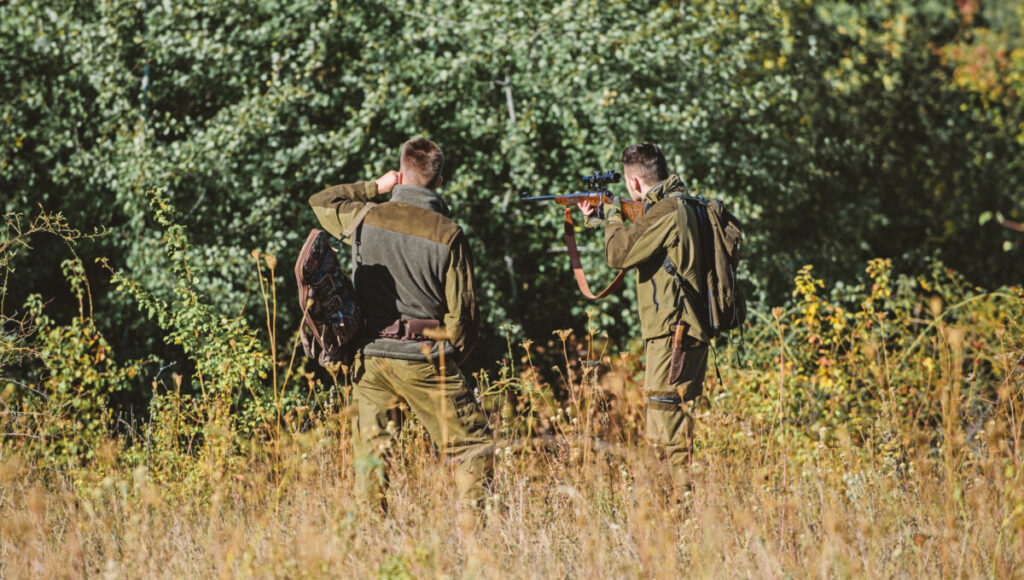
There is an element of talent and luck involved in becoming a paid hunter, but it is definitely a job that relies on skills. No amount of luck can make up for hard-earned hunting knowledge. Besides having an interest in hunting, what can you do to become a paid hunter?
Go Hunting
This might seem like an obvious answer, but your experience is vital in the hiring process. Go on hunts, even if you can’t afford to harvest the animal. You’ll still be learning valuable tracking and hunting skills that will come in handy later!
Additionally, some people who’ve hunted one type of game their whole lives might find out that they dislike hunting another type. Hunting stone sheep in Alaska is very different from hunting elk in Utah, and both of those are different than hunting pythons in Florida. What will your niche be? What’s your special interest?
Nothing else will make you a paid hunter except hunting. If you don’t hunt, you can’t get paid for it. You can take a temporary break to pursue higher education or other experience, but you must return to hunting if you want to do it professionally.
If you’re starting from scratch and don’t have a regular opportunity to go hunting, ask friends and family to see if anyone can take you. Young people reading this may have to reach out to a professional mentor. The benefit of this is that they can also mentor you in becoming a professional hunter!
Get Your Equipment, and Choose a Focus
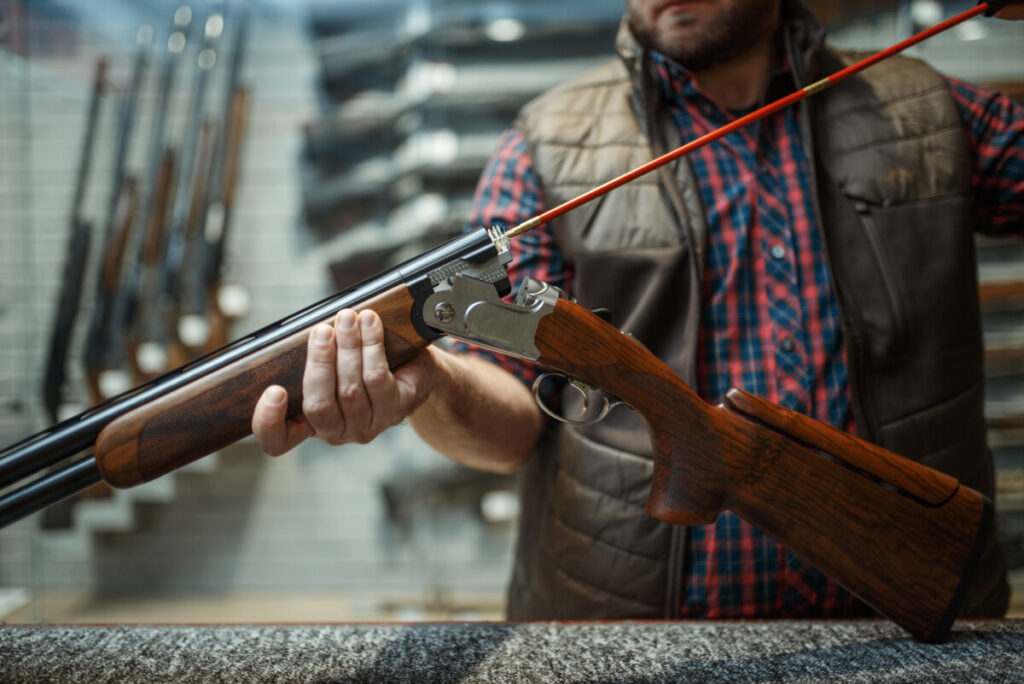
What are you hunting with? Will you be using guns or a bow and arrow? What kind of gun or bow will you be using? What type of ammunition?
There are a lot of questions involved with hunting, and all of them will influence the type of hunting you’ll be able to do professionally. Somebody may pay you well to guide them on a bow hunting trip, but a government job will more likely hire you with gun experience.
Knowing your focused skill set will allow you to achieve the level you choose.
Proper equipment is also vital, but it can be expensive. You’ll need different gear for an Alaskan winter or an Arizonan summer. Make sure you have boots, coats, orange clothing, sights for your guns, gloves, and packs that you need. Most importantly, be sure that you can trust your equipment.
Start by Hunting Game with Bounty Programs
Many state fish and game agencies offer bounty programs to incentivize hunters (and anglers) to target certain game species. This may be due to overpopulation, predation, harming agricultural crops or livestock, or causing some other type of nuisance to humans.
It’s not uncommon for a game and fish agency to offer bounties for coyotes, invasive fish species, or varmints.
Don’t count on making a living this way, but it can be low-hanging fruit to help you get started.
Get an Internship, Apprenticeship, or Seasonal Job
Old hunters don’t always have somebody to pass their skills on to, and those skills can be legendary.
Do you know an old man who’s hunted a hundred mountain lions? What about the old woman who has a house full of taxidermied alligators? Ask them about their careers and follow along!
Government agencies like Wildlife Services offer student jobs or internships through APHIS, which was mentioned above. APHIS, or the Animal and Plant Health Inspection Service, helps keep wildlife manageable in the community.
If you’re considering working with the U.S. Government, try out an APHIS short-term option and see if it’s for you. It won’t hurt to have the experience, especially if it builds up your resume! You might like it enough to get a full-time job there.
Some companies or agencies will also offer seasonal or short-term jobs. You might be able to sign on with a master hunting guide for one deer season or help a sheep herding business with a coyote problem.
Take advantage of opportunities near you that will add variety to your resume and experiences, and remember that good stories are great advertisements.
Learn Additional Skills
Potential dream jobs have been lost because a smug seasonal hunter didn’t want to learn the correct way to break down a deer for a taxidermist. Don’t be that hunter. Learn some extra skills, and be open to advice and correction from people with more experience than you.
Additional skills like videography, photography, taxidermy, cooking, food preservation, and advertising will be valuable as a hunter. These skills can help you earn a side income or land a competitive job and run your own business someday.
Even a skill like web design could help you build your hunting business. You could build a more attractive website, which will draw in better clients than a flyer stapled to a bulletin board.
If you happen to live in a region with too many hunters for the number of clients, you can fall back on these skills to continue earning income.
You could mount animals for other hunters, buy meat from them to preserve, or accompany them on hunts to take videos for their websites. You could make a living off these skills until you can hunt again.
In summary, giving yourself a broad, stable skill set is a great way to make yourself a more interesting hire, a more attractive professional guide, and even a better hunter.
Get a Degree

This is similar to the additional skills concept, but it can become a major asset if you want to work for the government or a company someday. A degree in Biology, Wildlife Management, Animal Science, or Business can give you a serious leg up in your chosen niche.
The U.S. Government and big companies are more likely to hire someone with a degree in Biology or Wildlife management, as you’ll be able to keep working in the offseason and perform additional duties besides hunting.
You’ll be able to record information about the health and conditions of the animals, check their habitat, and ensure good hunting for future generations.
A degree in business will help you the most if you decide to build a private company. This will help you learn all the legal requirements, setup, and advertising that will give you the best chance of success in your chosen area, and you can consult with other hunters to help them do the same.
Get Licenced and Certified
There aren’t many certifications required to be a hunter in the U.S. In most states, all you need is a hunting license, an appropriate tag or permit for the game you’ll hunt, and proof of taking a hunter’s safety course.
The same is true in Canada, though out-of-state hunters need to work with an outfitter (professional hunters) to hunt game.
Things are a little different for professional hunters. You may need additional permits or certifications, especially if you’re hunting internationally. An outfitter’s permit may be required by your local authority to become a guide. Membership in major hunting clubs can also make you more attractive to future employers and clients.
Making Money as a Professional Hunter is Possible
If becoming a professional hunter is something you feel passionate about, then do it! There are many paths to achieving that goal and an endless number of ways to make it happen. It could be through a college degree and a career with the government. Or it could be through mentorship and building your own business. Either way, you could make a livable wage doing what you love.

